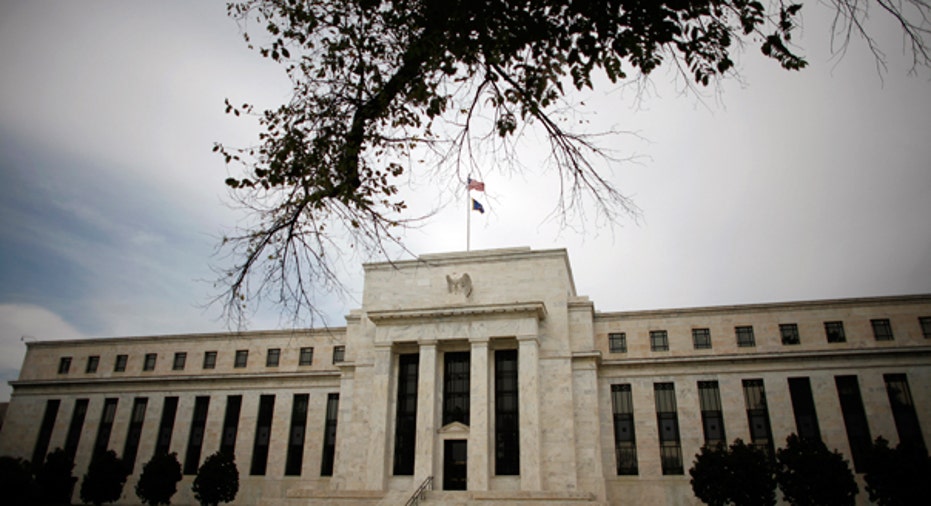Obama, Romney and Federal Reserve Independence

The Federal Reserve is a hot-button issue for some members of Congress, for instance the former presidential candidate Rep. Ron Paul from Texas. Though Paul's supporters were no doubt disappointed that he failed to win the nod from the GOP, his antipathy for the central bank did get some recognition with a spot in the Republican platform.
From the platform:
(The) Republican Party will work to advance substantive legislation that brings transparency and accountability to the Federal Reserve, the Federal Open Market Committee and the Fed's dealings with foreign central banks. The first step to increasing transparency and accountability is through an annual audit of the Federal Reserve's activities.
Though it sounds vaguely Ron-Paulian, Mitt Romney, Republican presidential nominee and former Massachusetts governor, has not advocated or endorsed the Audit the Fed bill approved by the House in July.
The bill does offer some specific ideas about where in the central bank to shine some light. Those include discount window and open market operations, agreements with foreign governments and central banks, and Federal Open Market Committee directives.
The discount window is the Federal Reserve's emergency lending operation for banks. When solvent banks can't find short-term financing through other means, they can go to the Fed as the lender of last resort. Banks that borrow through the discount window are not publically identified. The term "open market operations" refers to programs in which the central bank buys securities in the open market.
"The Fed, just like any bank, is always audited to the extent of basic operations to make sure there's no malfeasance," says David Stasavage, a professor of politics at New York University. "But, what they've pushed on more -- and I think this is more of a hot-button issue -- is the extent to which Federal Reserve deliberations or records of deliberations should be subject to greater scrutiny."
As it currently stands, the regular monetary policy meetings of the Federal Open Market Committee, or FOMC, are strictly closed-door affairs. Three weeks after the meeting, a paraphrasing of the minutes is released. After five years, a lightly edited verbatim transcript is released.
The Devil Is in the Details
While Romney has publically thrown his support behind the idea of auditing the Fed, his campaign has not offered many details beyond that.
"It is clear that some behind this movement, such as Congressman Paul, want much more than just transparency and accountability," says Anil Kashyap, the Edward Eagle Brown Professor of Economics and Finance at The University of Chicago Booth School of Business.
"Others may simply feel that some of the beneficiaries from government support during the crisis were not clearly identified. There is a big gap between these two views. Without seeing the actual rules, it is impossible to determine whether this will be a big change or not," he says.
The President on the Fed
For his part, the president has not had much to say on the issue of auditing the Federal Reserve. He did defend the monetary policies enacted in the first quantitative easing program in 2010.
In November 2010, President Barack Obama said, "I will say that the Fed's mandate, my mandate, is to grow our economy. And that's not just good for the United States. That's good for the world as a whole," Reuters reported.
Though the president hasn't said much about Federal Reserve audits, Treasury Secretary Timothy Geithner has. Geithner served as president of the Federal Reserve Bank of New York from 2003 to 2009, when he was named Treasury secretary in the Obama administration. Geithner has spoken about the idea of auditing the Federal Reserve, but he's not in favor of it.
In an August 2009 interview with The Wall Street Journal, Geithner said, "The Fed is dramatically more transparent than it was, and is subject to comprehensive oversight and audit. But there are certain things that the Fed does that you need to make sure that you preserve as independent of political influence. That line is one that we don't want to cross."
If the Treasury or the Obama administration has any bones to pick with the Federal Reserve, they haven't made them public. To all appearances, the Geithner Treasury and Ben Bernanke Fed have worked well together.
"Secretary Geithner had very strong ties to the Fed, and it seems the Fed and Treasury have mostly avoided turf battles. A different Treasury secretary, Democrat or Republican, might function very differently, especially if he or she has a different world view than Chairman Bernanke's," Kashyap says.
Political Independence
The air of secrecy around the Fed has attracted no shortage of conspiracy theories, some of which feed the calls to turn the central bank upside down and dislodge its secrets. But one of the hallmarks of the central bank is that it is apolitical and independent, and that's for good reason.
"There is strong evidence that independent central banks deliver better inflation performance. And, by better inflation performance, I mean lower and more stable inflation than less independent central banks," says Rob Roy McGregor, professor of economics at the University of North Carolina, Charlotte.
Whenever Congress becomes involved in the workings of the Fed, it runs the risk of injecting politics into monetary policy. For instance, the appointment of Fed governors already has taken on political overtones.
"A Nobel Prize winner from MIT was turned down because there was opposition in Congress. The risk is that you're not going to get the best people on the FOMC. You're going to get people who are subject to one political constituency or another, but they're not the best people," Stasavage says.
Without any details of how the Federal Reserve should be monitored, it's difficult to judge how much mandated audits would influence monetary policy, if at all. Just the perception of being observed could influence FOMC deliberations, observers say.



















